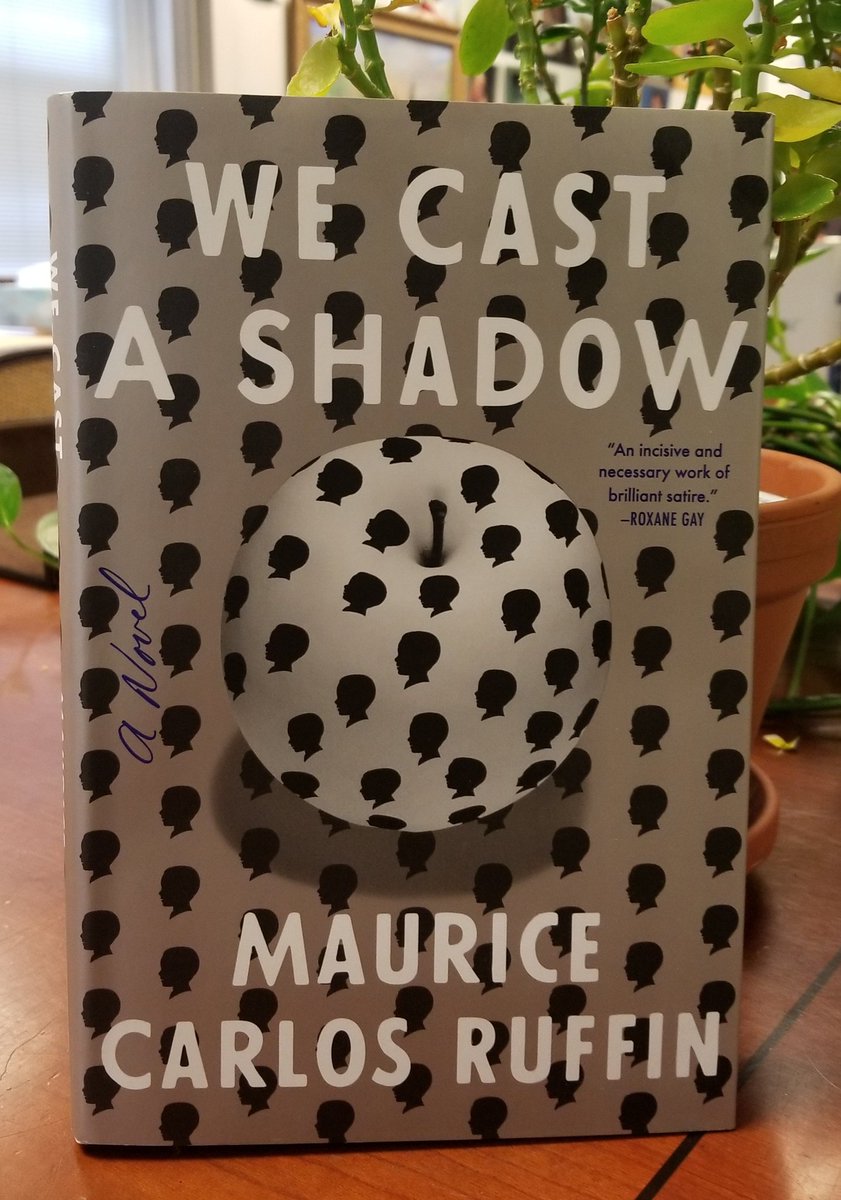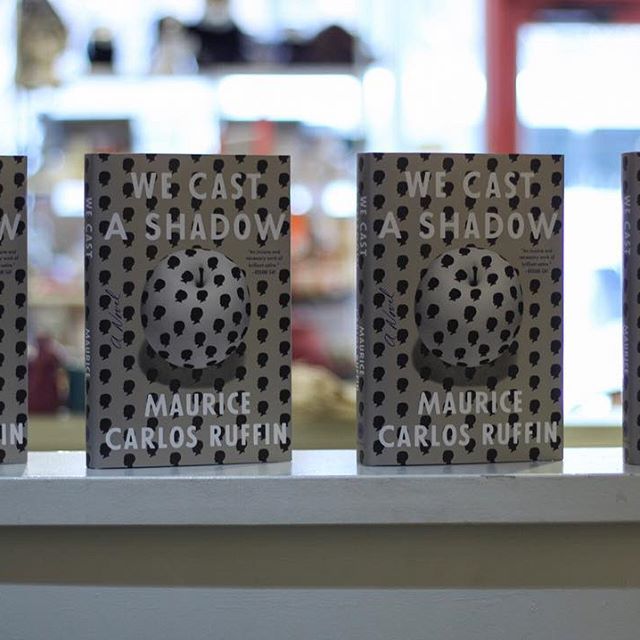A black father takes desperate measures to protect his son from racism in this hard-hitting speculative novel.
The racist world created in Maurice Carlos Ruffin’s provocative near-future novel We Cast a Shadow is disturbing but not far-fetched. This debut novel offers a bleak satirical depiction of a man mentally (and physically) warped by a lifetime of racism and brutality.
Imagine a dystopian near-future where racial relations have deteriorated in simultaneously predictable and horrifying ways. The novel is narrated by an unnamed black father who lives in an unnamed city in the American South. We Cast a Shadow presents a world in which racial injustice exists openly and unabashedly, an eerily logical extension of current discussions on prison reform, educational inequality, and housing rights. Black citizens of the City are segregated to a fenced-in housing development called the Tiko, subject to police brutality and nightly curfews–punishments for black uprisings of the recent past. Ruffin seizes the immediacy of twenty-first-century fears like terrorist attacks, voter suppression, and the surveillance state, portraying them in explicitly racialized contexts. At the heart of these anxieties is “demelanization,” a strange procedure at Dr. Nzinga’s clinic that allows patients to lighten their skin, thin their lips, and narrow their noses.
Though in the recent past race relations appeared to be improving, things have deteriorated quickly between the city’s poor black inhabitants and its more affluent white majority. The father is a lawyer who is married to an activist white woman named Penny. They have a young biracial son named Nigel. The narrator’s extended family still work and live around the city’s Tiko housing project, though his father, Sir, is in prison for getting in a fight with an abusive police officer.
“I don’t have to tell you that this is an unjust planet. A dark-skinned child can expect a life of diminished light. This is truth anywhere in the world and throughout most of history.”
It is this vague possibility of purchased whiteness via Dr. Nzinga’s clinic that becomes the unnamed narrator’s sole mission–not for himself, but for his biracial son, Nigel. Though Nigel is light-skinned, and could perhaps pass for white, the narrator sees the spot of dark skin on Nigel’s face as a true “black mark” against his son, a physical manifestation of the cycle of shame, injustice, and lost opportunity plaguing the narrator and his father before him. While perhaps somewhat noble in its premise, the narrator’s quest to spare Nigel from blackness becomes destructive in its methods. As his chilling obsession with demelanization grows, the narrator goes to increasingly dangerous lengths to reach his goal, allowing himself to be demeaned and compromised in extreme ways. His struggles at the law firm and at home are complicated by his addiction to “Plums,” chemical escapism with a dystopian flair.
The racism depicted in the novel operates on many levels. The little things add up. The narrator is mistaken for waitstaff, even a mugger. His coworkers of color are obsessed with whiteness, getting plastic surgery to change their noses and lighten their skin. The narrator is added to his law firm’s diversity committee after beating out other black candidates in an outlandishly racist competition. He must work with the Blind Equality Group, or BEG, on a community campaign. The organization spouts tenets of color blindness but is inept at dealing with systemic inequalities. The more speculative yet still realistic aspects of the book include a dreadlock ordinance that allows police to cut off the dreads of African-Americans, intrusive police patrols wherever black people have moved into the white suburbs and even deportation of some black people.
Ruffin skewers institutional racism with style and wit. But he also reveals the insidious nature of racism and the complex psychology of the marginalized. For the narrator is also obsessed with whiteness, so much so that he begins expensive skin treatments for his own son. Nigel has a dark birthmark that seems to be growing larger as he nears his teenage years. Listing all the ways his son will be hurt by society as he grows older, the narrator makes an impassioned plea. “A dark-skinned child can expect a life of diminished light,” he says. That his own wife and son are against the treatment makes the narrator even more desperate. The novel becomes his missive to the reader, his only recourse, as he tries to justify his actions.
The opening scene of We Cast a Shadow, in which the narrator is forced to play the fool in costume to earn attention and approval from his white employers, is the first of many echoes of Ralph Ellison’s’ Invisible Man. Like Ellison’s unnamed narrator, Ruffin’s protagonist is invisible not only to society, but to himself as well. The narrator’s bleak moral ambiguousness is intentionally jarring for the reader; it’s difficult to see him as likable or respectable. Yet, the narrator never hesitates to participate willingly in his own erasure if it suits his needs, even when the personal costs are enormous. Too, Ruffin has studied Ellison’s weaving, rapid-fire style: “I saw it all. Elderly men with their pockets turned out. Girls dressed for parties in platform heels with the contents of their purses scattered across broken concrete. Splattered ice cream cones. Overturned red wheelbarrows. So much depends upon a man with a hatred of his own.”
We Cast a Shadow boldly explores race in America as few novels have. Ruffin tackles his subject matter with lively prose and an entertaining plot. It is a challenging, unsettling read, but rewarding in its boldness.
“I sometimes questioned the plausibility of two people so deeply in love ending up as mortal enemies. Maybe love was just the larval stage of hate, the comely caterpillar in advance of the hideous butterfly.”
@Wizzy, Afro Bodhisattva, Entrepreneur, Physical Anthropologist, Freelance researcher of African Studies, culture, tradition and heritage, CEO Dolomite Aggregates LTD and Founder MBA Métissage Boss Academy @metissagesanguemisto.






